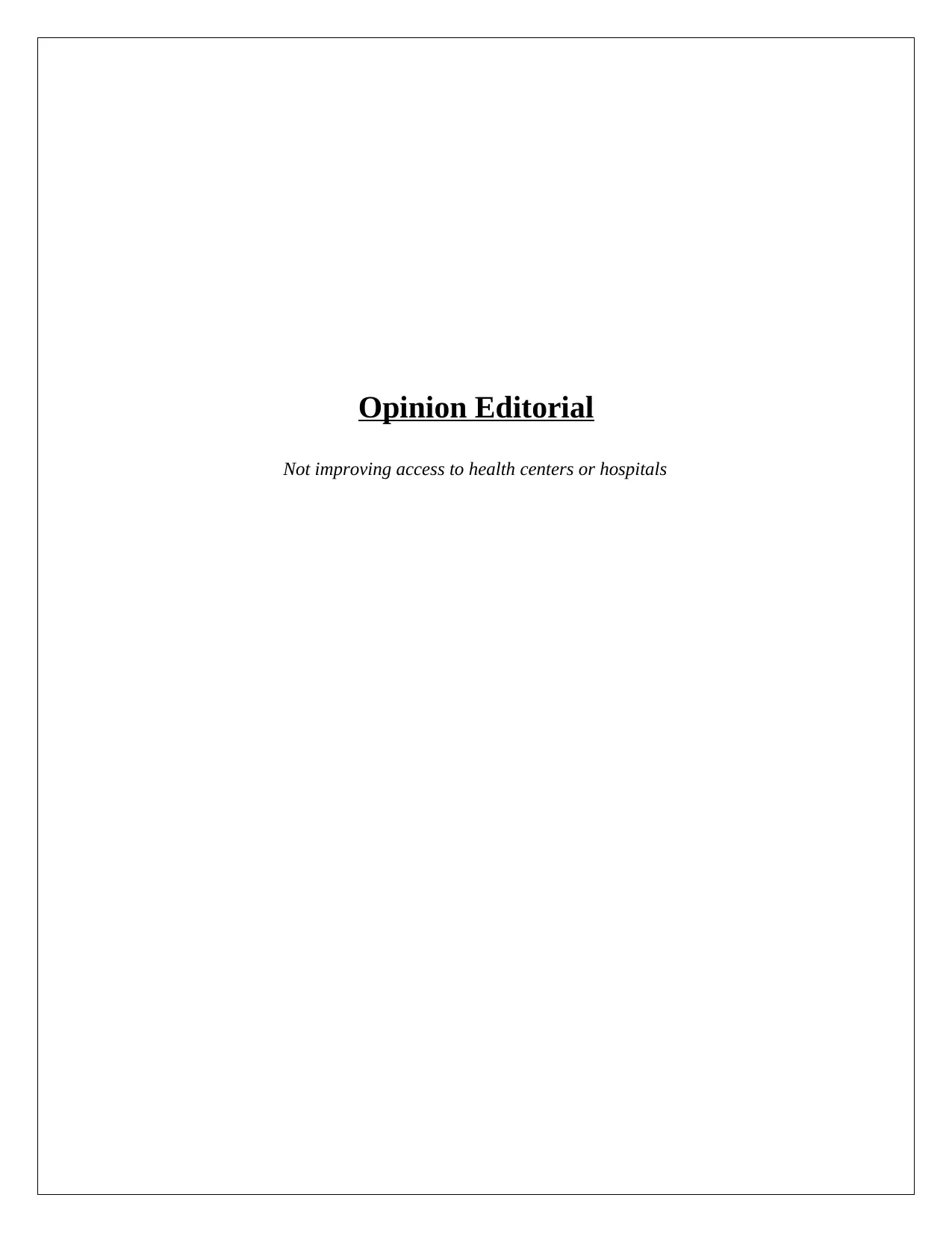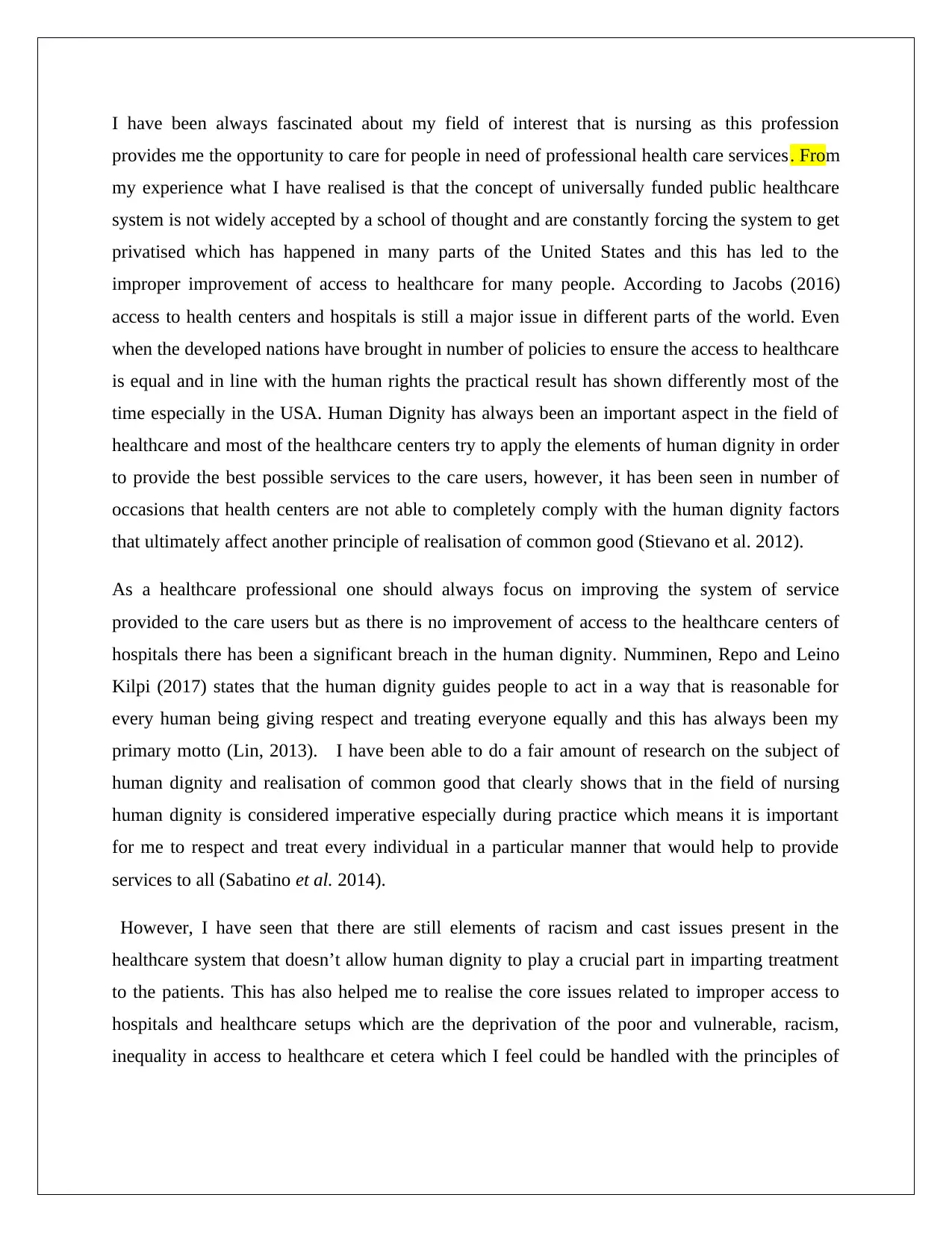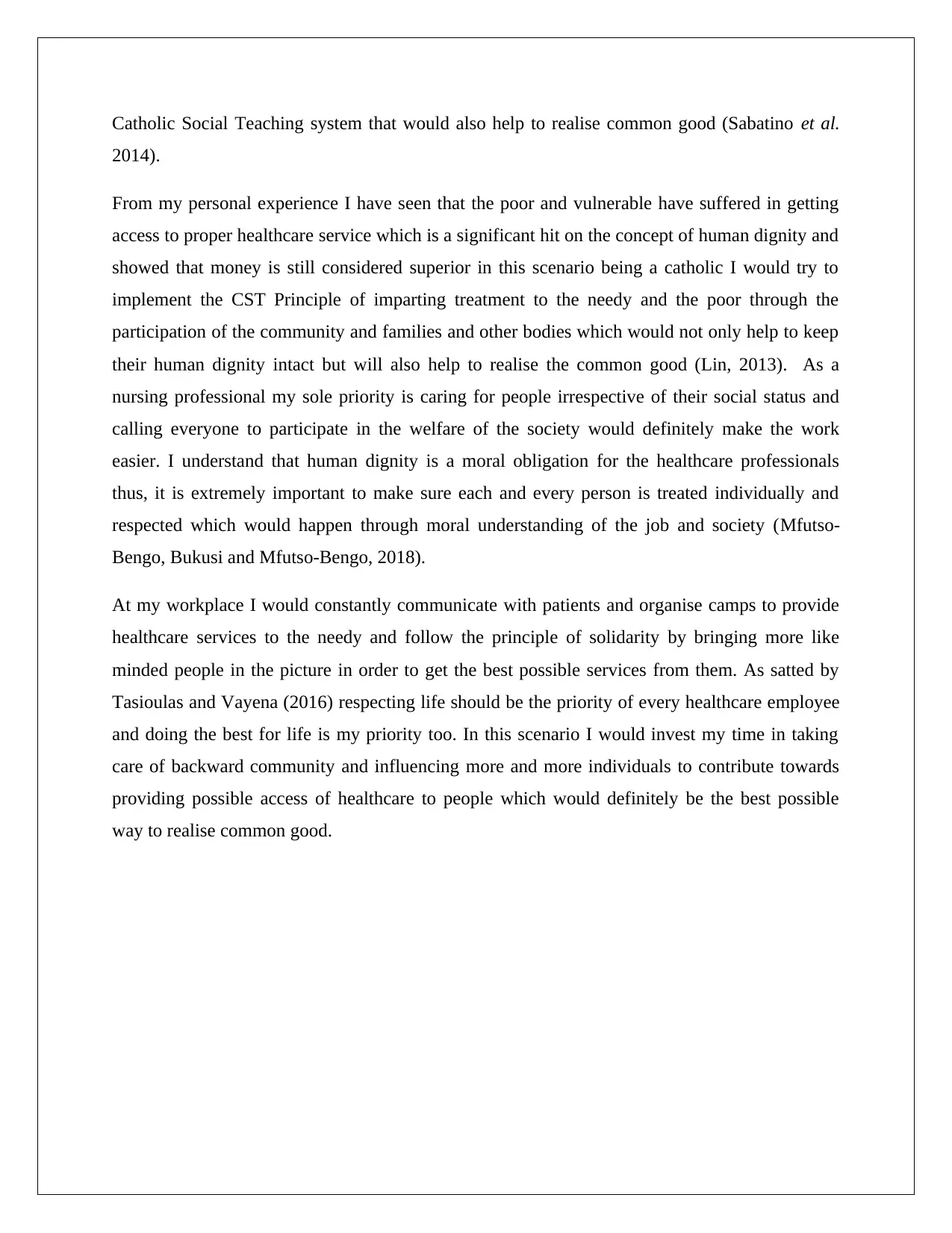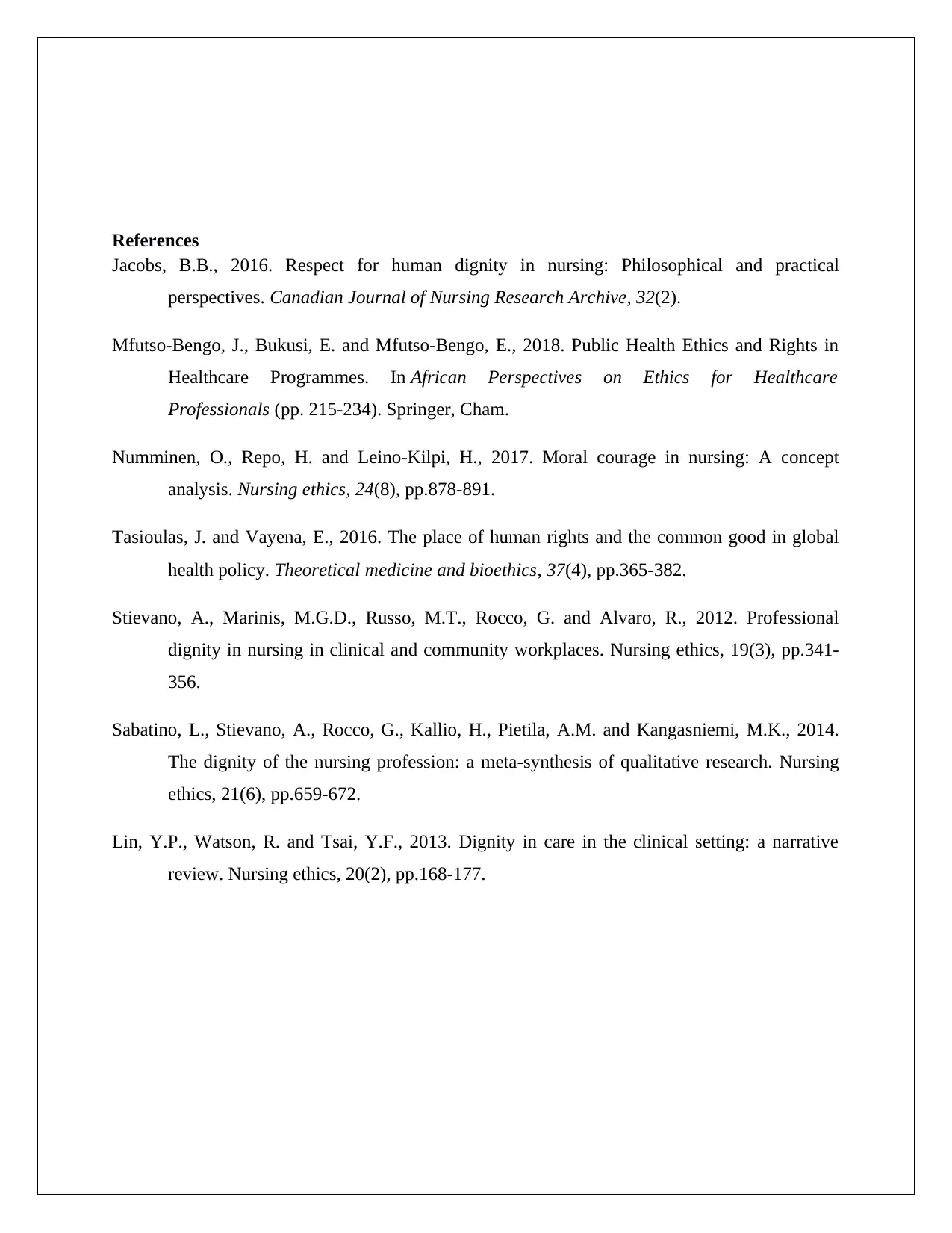Healthcare Access and Human Dignity: A Nursing Perspective
VerifiedAdded on 2022/10/04
|4
|1093
|33
Essay
AI Summary
This essay, written from a nursing perspective, addresses the critical issue of improving access to health centers and hospitals, particularly in the context of the United States. The author, drawing from personal experience and research, highlights the challenges of healthcare access, emphasizing the impact of privatization, inequality, and the violation of human dignity. The essay explores the importance of human dignity in nursing practice, citing relevant research and the principles of Catholic Social Teaching. The author argues for the need to prioritize the needs of the poor and vulnerable, combat racism, and promote community involvement to realize the common good. The essay concludes with the author's commitment to advocating for improved healthcare access and upholding human dignity in their nursing career, emphasizing the importance of respecting life and providing care to all individuals regardless of their social status. The author also emphasizes the importance of community participation and solidarity in ensuring the best possible healthcare services for everyone.
1 out of 4











![[object Object]](/_next/static/media/star-bottom.7253800d.svg)